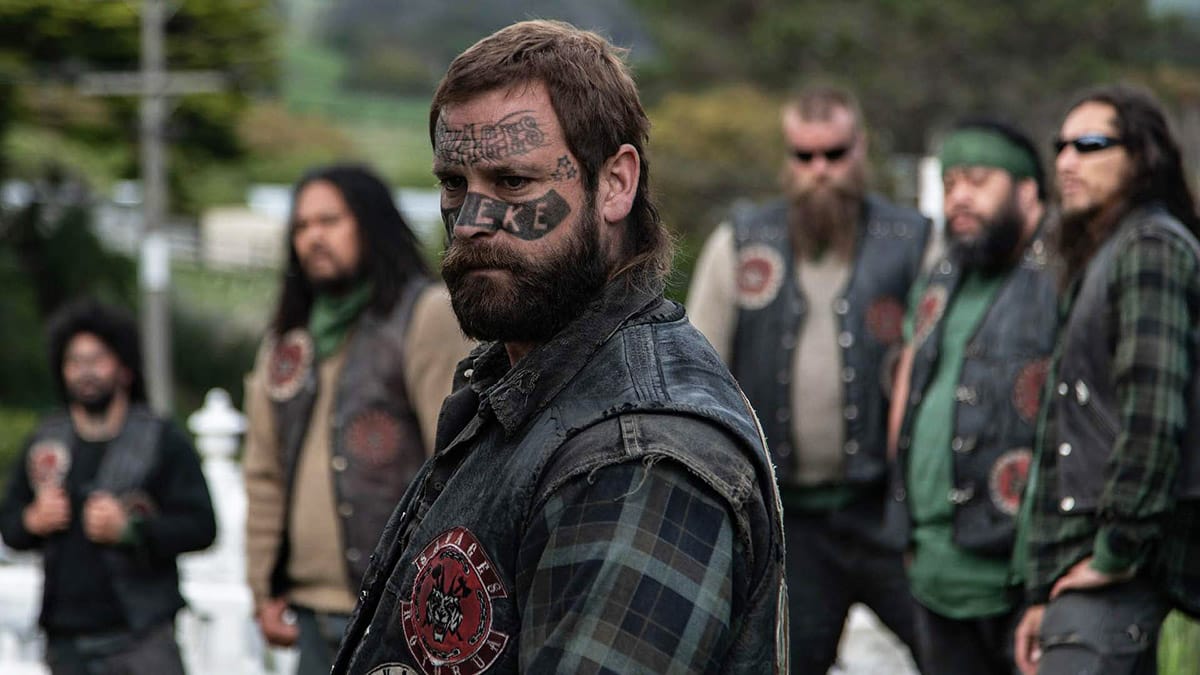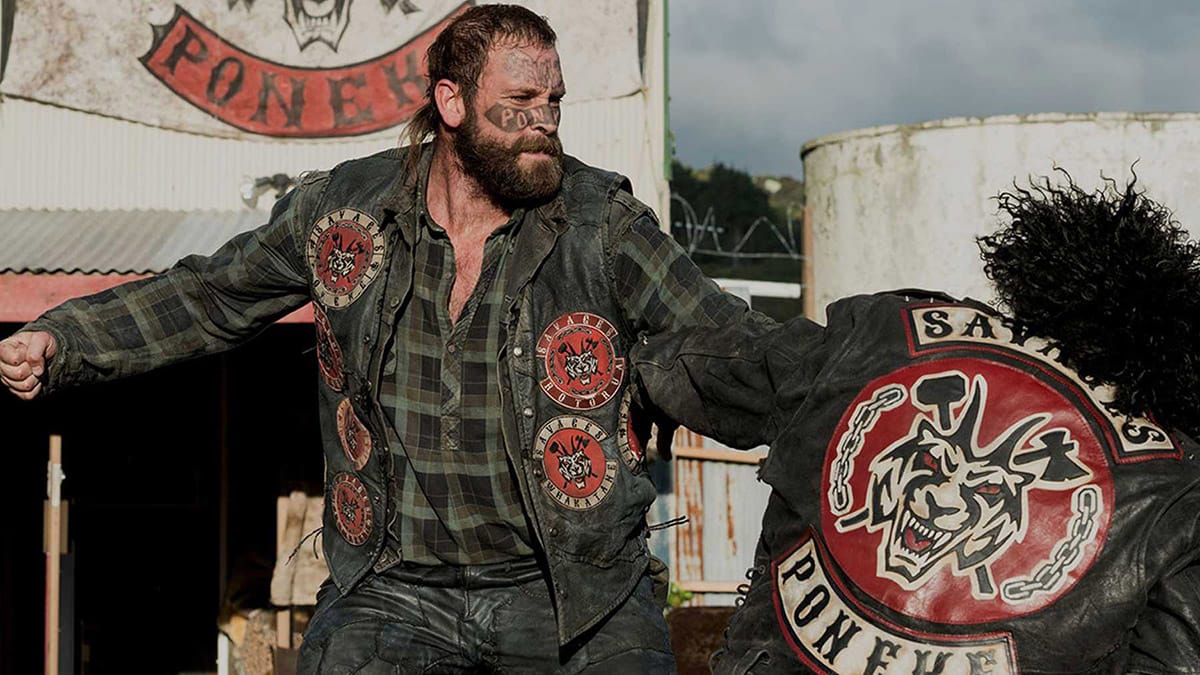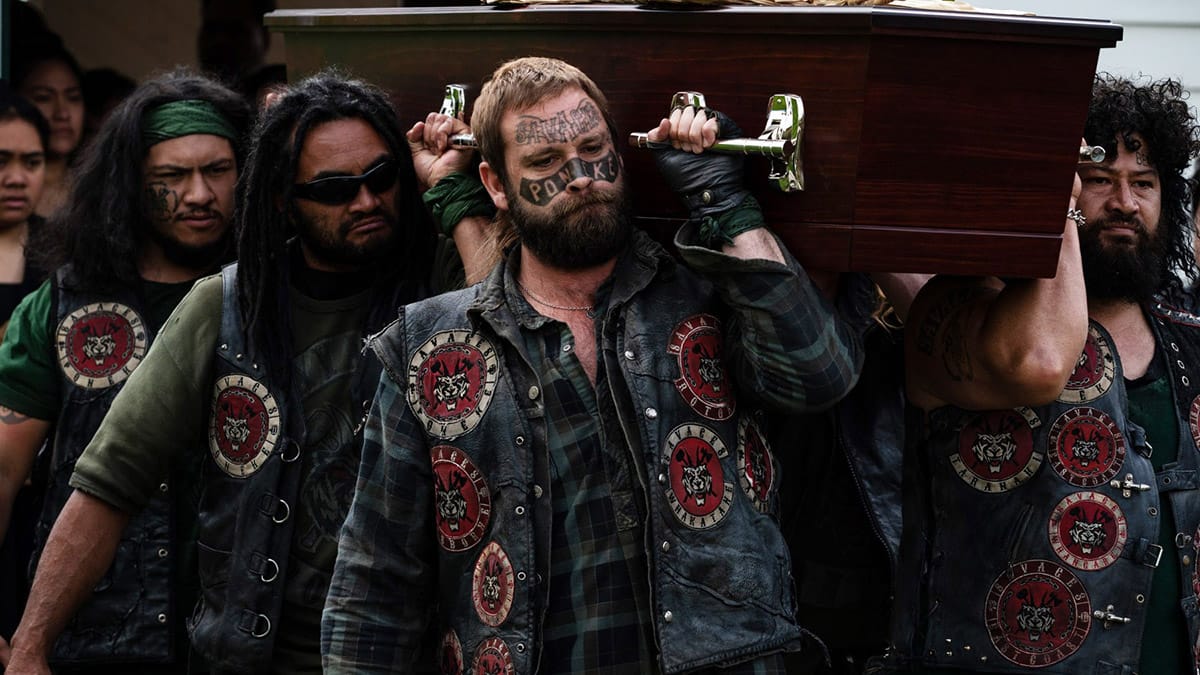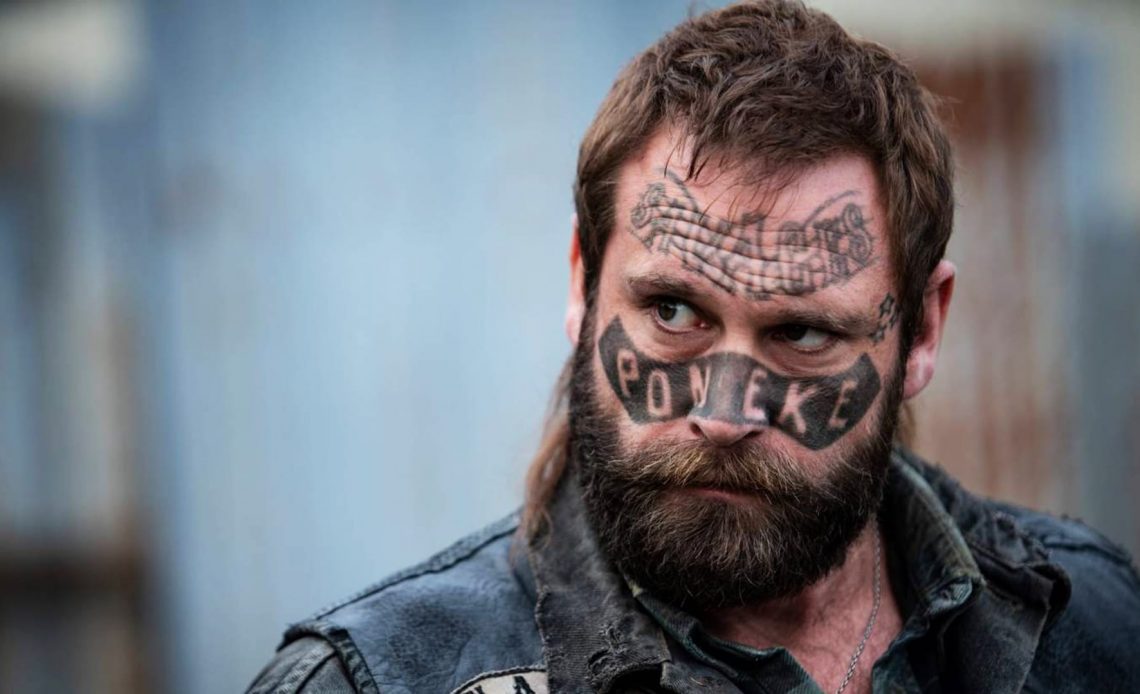A minute character study of fragility, warped masculinity, and a longing for connection drives Savage, the debut film by writer/director Sam Kelly.
A surprising vulnerability with unexpected touching moments, generational-defining questions, and a quest for self-awareness makes Savage a dark and unrelenting character study based on true stories of New Zealand street gangs in the 1970s and 80s. Across three decades, we witness the young New Zealander Danny progress into the excessively tattooed, mean and violent enforcer of the Savages street-gang.
Starving and brutalised at home, Danny is sent to a borstal (an institution for young offenders) for stealing food, where he is again abused and brutalised. There he befriends a Tongan New Zealander boy called Moses and they form a gang, the Savages — a statement of intent to expose society’s true nihilistic core of the underprivileged. Constantly, Danny is torn between loyalty to his birth family and loyalty to his new life and his new family, in the guise of the gang. By the 1980s, Danny has become known as Damage (Jake Ryan), a hulking, stalking, enforcer who uses excessive force to get every job done. As the sergeant of the gang, he is the most feared, most respected, and importantly, the most disliked out of all the members.
Naturally, Danny’s position is never secure. Nor is his best mate Moses’ (John Tui) position as president. Infighting, power-plays, and corruption lie at the heart of this underworld empire, so naturally, deadly force and cruelty is what keeps the people at the top in control, and all of their underlings circling whenever there’s a sign of weakness. Across Danny’s face is his mask, his banner, his allegiance in a blue-grey nose guard of his gang-crest ink colours.

Director Sam Kelly’s writing is mostly superb, and the direction is tight and realistic. These characters are tough, nasty, but ultimately human. Once or twice, he makes stylistic choices which have become almost cliché now in their use in crime-dramas to show the transformation of individual thugs into a cruel and nasty cohesive gang — the whole swaggering out for the first time, Reservoir Dogs-style, was a bit much but Kelly quickly shifted back into gear so style never overtook the substance of the film.
There is a mark of self-loathing and repressed homosexuality within a lot of the gang members that hovers in certain phrases and gestures, but doesn’t linger too long to distract from all of the emotional cost of holding your own in this self-inflicted, self-imposed prison of toxic masculinity and testosterone. There are times when Danny, taking on the responsibility of mentoring a new ‘prospect’, dangerously dances into becoming farcical, but Kelly holds the tension with the right amount of force that it doesn’t fall into over-the-top melodrama, which this kind of film can easily become.
Savage doesn’t shy away from its subject matter, but doesn’t glorify or get too immersed in its ever-lingering whiff of sexual violence towards women and some of the young men involved in the gang. Interestingly, Damage/Danny fails in an attempted hook-up with a banker’s daughter, who’s slumming, looking a for bit of rough, mainly because he can’t handle surrendering his perceived notion of masculine control. However, there are hints throughout the shifting timelines of this movie as to why he can’t seem to get it up.

Violence, suppression, abuse, and lack of empathy across several decades is taking its toll on Damage. As the protagonist, he is the most sympathetic character of the film, but also the most who has an unease about himself. Gangsters, especially gang enforcers need to strut, they have to constantly show strength and decisiveness, and radiate an air of being able to handle any situation. Damage is losing his grip on all these aspects of his life and it is a fascinating study to watch on the screen.
Kelly has an inherent knack for putting really tough and twisted societal norms across with an almost soft poetic style, that for the most part lacks sappiness or coming across as maudlin. Most of the film is spent with Damage, as the enforcer, and we see how that is cutting away at his soul, how that is possibly turning him into what he fears the most. The final straw for Damage is taking a young ‘prospect’ under his wing, which finally presents Damage with the chance to break the cycle of violence around him. There are slight hints of racial tension between the different gangs when they’re at war, and lots of homophobia and sexism. Masculinity is never as fragile or as comic as when it’s used to wield power over others.

Savage hits all of its marks with exquisite precision. However, the ending seemed to be a bit lukewarm, feeling a little bit too schmaltzy, though as this story is based on true events, and stories of the street gangs of New Zealand, the ending was more than likely a true occurrence as well. Is this a story of the inevitability of someone turning to crime, or is it the fall and possible redemption of an innocent turned bad? That is up for others to decide, but the story is neutral in its handling of the dilemma. It is what it is and makes no apologies for it.
The cast is solid. The writing, editing and direction is mostly on point, and the story is just as relevant now as the period that is showcased. Savage is a solid film that touches on extremely dark, tense, and important themes in our society that cannot be ignored.
Fun Fact:
Melbourne-born actor Jake Ryan spent a month with current and former Kiwi gang members in preparation for the role.




COMMENTS